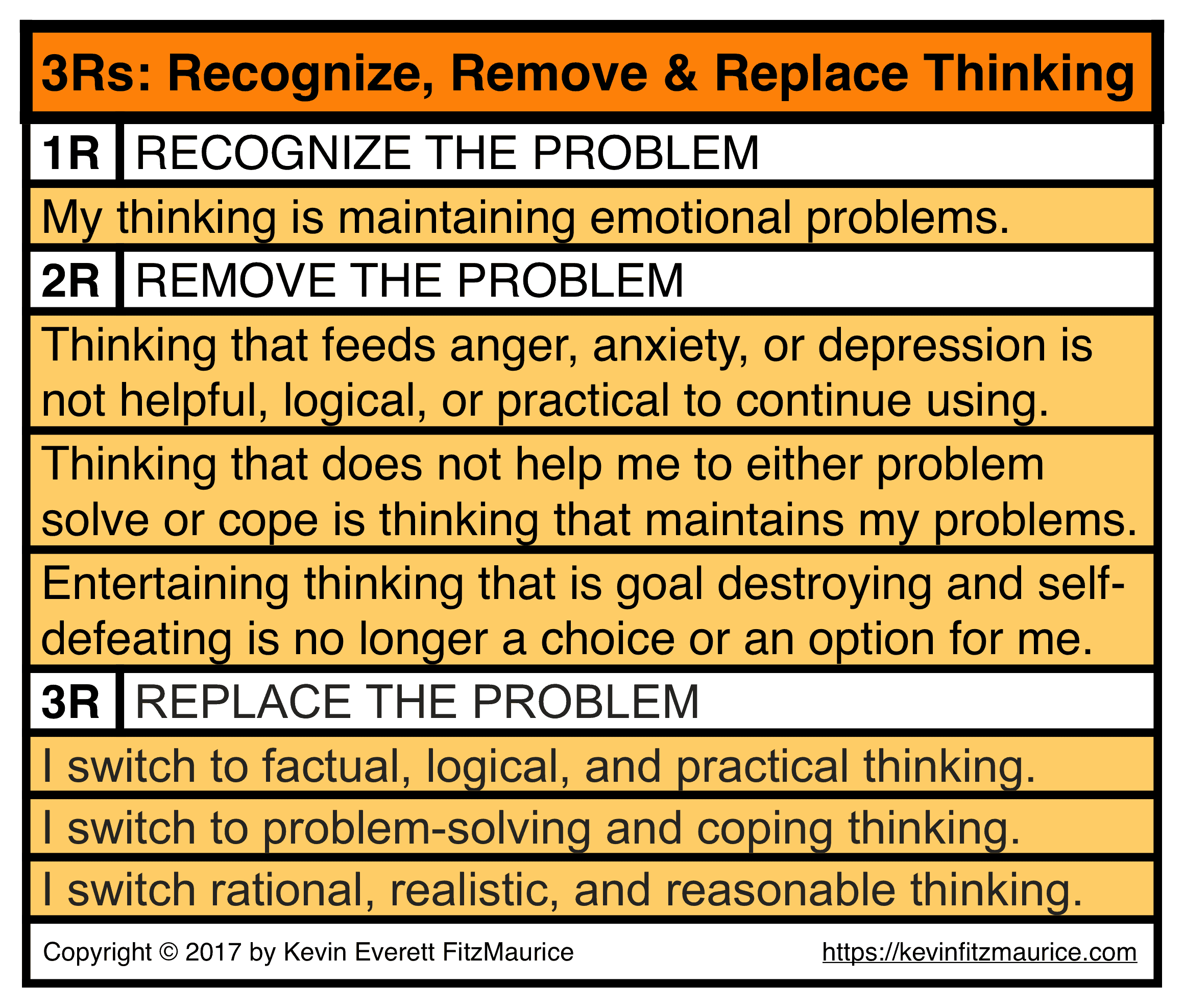Garden NowMotivation to GardenAnalogy of GardeningRelated QuotationsRelated Pages6 Groups of Topics9 Skills & Topics
Recognize, Remove, Replace (3Rs)
Tools to Garden Your Thoughts
- Garden will teach you an easy and effective Cognitive Behavioral Therapy (CBT & REBT) system.
Garden your thoughts using the 3Rs to Recognize, Remove, and Replace. Delete your weeds and insert your plants. Enjoy!
OBJECTIVE FOR GARDENING YOUR Thoughts
- Learn to manage your thinking by relating the management of your thinking to the management of a garden.
- Managing your mind will help you manage everything else.
- Click for pages of information on testing your thinking.
- Read and discover the best self-help system using CBT.
- Garden your thoughts with this book.
MOTIVATION FOR GARDENING YOUR THOUGHTS
- Wouldn’t you agree that it would be nice to have a clear and easy way to understand how to improve your attitude?
- Don’t you agree that by improving your attitude, you improve your life by improving at least your problem-solving and coping abilities?
Garden YOUR THOUGHTS
- The first thing that you must understand in order to be an effective gardener is the difference between weeds and plants.
- Else, how can you make good use of the soil?
- Therefore, the first principle is RECOGNIZE.
- If you cannot recognize the problem, you certainly cannot either problem-solve how to fix the problem or learn to cope effectively with the problem.
Recognize the Difference Between Weeds & Plants to REMOVE
- Once you can recognize the difference between weeds and plants, then you need to remove the weeds.
- As any gardener can tell you, weeds steal the resources that your plants need, and weeds will even choke out and kill your plants.
- Therefore, the second principle is REMOVE.
- If you cannot remove the problem, you certainly cannot keep from having the problem over and over again.
Replace Weeds with Plants
- Once you have recognized and removed the weeds, you then need to replace the weeds with plants.
- There is not much point in having clean soil if you are not going to plant in it.
- The fact is, if you do not plant in the cleaned soil, then the weeds will find their way back into your soil.
- Therefore, the third principle is REPLACE.
- If you do not replace the weeds with plants, then the weeds will gradually come back.
- Read and discover the best self-help system using CBT.
- Garden your thoughts with this book.
Garden YOUR MIND ANALOGY REVIEW
- The weeds are the self-defeating thoughts and scripts.
- The plants are the helpful and productive thoughts and scripts.
- The clean soil is the quiet and empty mind.
- The recognizing is the awareness of the short- and long-term results that your thinking provides: “Wherefore by their fruits ye shall know them.” —Matthew 7:20.
- The removing is disputing or talking yourself out of the stinking thinking.
- The replacing is the planting and nurturing of practical, factual, logical, positive, problem-solving, coping, risk-taking, etc., thinking that helps you to achieve your healthy goals.
- The replacing is making good use of your mind by devoting it to healthy and helpful thinking styles.
BRIEF SUMMARY OF GARDENING YOUR MIND
- You need to RECOGNIZE the weeds in your mind, REMOVE the weeds from your mind, and REPLACE the weeds in your mind with productive plants.
- That is, recognize and remove your hurtful thinking and replace it with helpful thinking.
- Garden will teach you an easy and effective system of Cognitive Behavioral Therapy (CBT & REBT).
SELF & YOUR GARDEN
- You are the garden, not the weeds or plants in the garden.
- You are the mind, not the weeds or plants in the mind.
- The weeds and plants come and go, but the garden remains constant.
- The weeds and plants grow, develop, and change, but the garden remains the same.
- Read and discover the best self-help system using CBT.
- Garden your thoughts with this book.
Garden Your Thoughts: Quotations on Gardening
“In my garden, there is a large place for sentiment. My garden of flowers is also my garden of thoughts and dreams. The thoughts grow as freely as the flowers, and the dreams are as beautiful.” —Abram L. Urban
“There can be no other occupation like gardening in which, if you were to creep up behind someone at their work, you would find them smiling.” —Mirabel Osler
“You can bury a lot of troubles digging in the dirt.” —Anonymous
- Read and discover the best self-help system using CBT.
- Garden your thoughts with this book.
Garden Your Thoughts: Related Pages of Free Information
- CBT, CT, & REBT Cognitive Psychotherapies: List Pages
- Coping Skills: Free Help
- Counseling Issues: Free Help
- Ego & Self-Esteem Fast-Facts
- Emotional Responsibility: List Pages
- Exercises & Techniques: List Pages
- Feeling & Coping: Fast-Facts
- REBT (Rational Emotive Behavior Therapy): List Pages
- Self-Esteem Issues: List Pages
- Unconditional Self-Esteem (USE): Defined
- Read and discover the best diagrams and maps of how people play games with your mind and heart.
- Read and master the life skill of acceptance using the best combination of CBT, REBT, & Stoicism.
- Read and discover the best self-help system using CBT.
- Garden your thoughts with this book.
6 Groups of Topics Menu
- 1. Pages by Topic
- 2. Fast-Facts by Topic
- 3. Quotations by Topic
- 4. Poems by Topic
- 5. Scripture by Topic
- 6. Websites by Topic
- Read and master the life skill of acceptance using the best combination of CBT, REBT, & Stoicism.
- Read for the best breathing exercises for your feelings and stress.
- Read and discover the best self-help system using CBT.
- Garden your thoughts with this book.
9 Skills & Topics Menu
- 1. Anger Skills & Topics
- 2. Blame Skills & Topics
- 3. Communication Skills & Topics
- 4. Coping Skills & Topics
- 5. Counseling Skills & Topics
- 6. Praying Skills & Topics
- 7. Recovery Skills & Topics
- 8. Responsibility Skills & Topics
- 9. Thinking Skills & Topics
- Read and master the life skill of acceptance using the best combination of CBT, REBT, & Stoicism.
- Read for the best breathing exercises for your feelings and stress.
- Read and discover the best self-help system using CBT.
- Garden your thoughts with this book.





